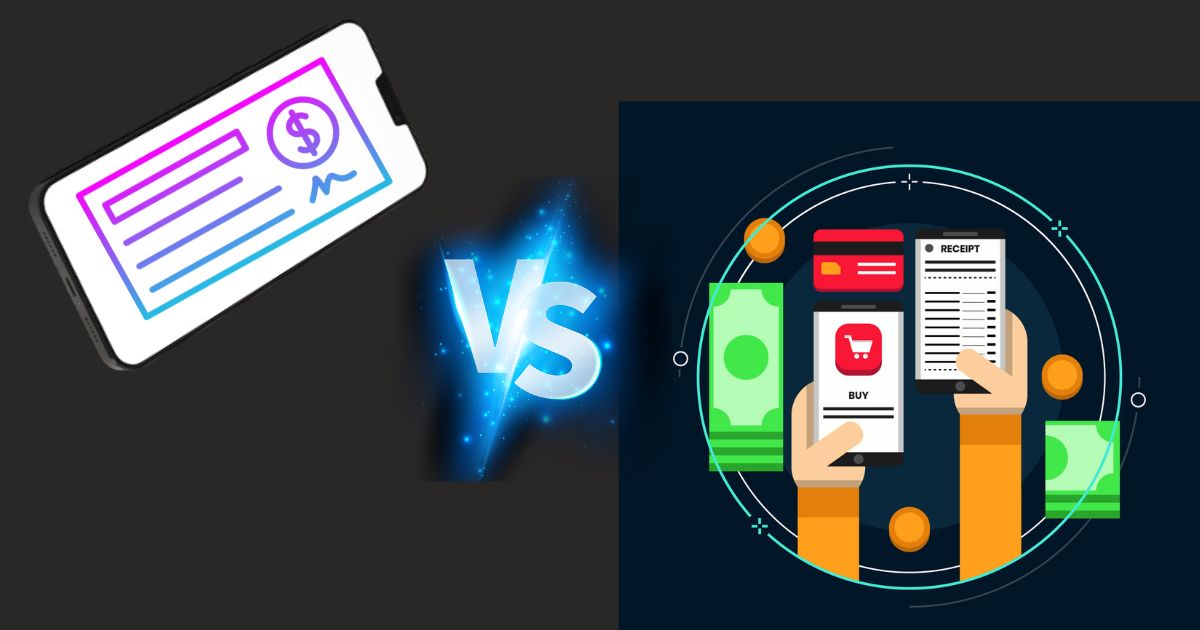
| February 8th, 2024 |
Echecks vs. Other Payment Methods — Making Informed Choices for Your Business!
In today’s rapidly evolving digital landscape, businesses face a plethora of options when it comes to accepting payments online. Among these options are echecks, a method that’s gaining traction due to its convenience and reliability. However, understanding how echecks stack up against other payment methods is crucial for businesses looking to optimize their payment processing strategies. In this comprehensive guide, we’ll delve into the intricacies of echecks and compare them with other popular payment methods like credit cards and digital wallets.
Echecks — A Closer Look:
Echecks, or electronic checks, offer a digital alternative to traditional paper checks. They allow customers to authorize payments online by providing their bank account details, including routing and account numbers. Echecks are processed through the Automated Clearing House (ACH) network, enabling funds to be transferred securely between bank accounts.
Pros of Echecks:
- Lower Processing Fees: Echecks typically incur lower processing fees compared to credit card transactions, making them an attractive option for businesses looking to reduce costs.
- No Chargebacks: Unlike credit card payments, echecks are not susceptible to chargebacks, providing businesses with greater protection against fraud and disputes.
- Broader Customer Base: Echecks can appeal to customers who prefer bank transfers over credit card payments, potentially expanding the customer base for businesses.
- High Acceptance Rate: Echecks have a high acceptance rate, making them a reliable payment option for businesses across various industries.
Cons of Echecks:
- Longer Settlement Times: Echecks may have longer settlement times compared to credit card transactions, delaying the availability of funds for businesses.
- Bank Verification Required: Processing echecks often requires verifying bank account details, which can add complexity to the payment process.
- Limited Global Reach: Echecks may not be as widely accepted internationally compared to credit cards and digital wallets, limiting their utility for businesses with a global customer base.
Comparing Echecks with Other Payment Methods —
1. Credit Cards:
Credit cards have long been a dominant force in the realm of online payments, offering convenience and widespread acceptance. Here’s how they compare to echecks:
Pros:
- Instantaneous Transactions: Credit card transactions are processed almost instantly, providing businesses with immediate access to funds.
- Global Acceptance: Credit cards are accepted worldwide, making them ideal for businesses with international customers.
- Consumer Protection: Credit card issuers often provide robust protections against fraud and unauthorized transactions, enhancing customer confidence.
Cons:
- Higher Processing Fees: Credit card transactions typically incur higher processing fees compared to echecks, cutting into businesses’ profit margins.
- Chargeback Risks: Credit card payments are susceptible to chargebacks, exposing businesses to potential losses due to disputes and fraud.
2. Digital Wallets:
Digital wallets, such as PayPal, Apple Pay, and Google Pay, have gained popularity for their convenience and security features. Here’s how they stack up against echecks:
Pros:
- Seamless Checkout Experience: Digital wallets streamline the checkout process, allowing customers to make payments with just a few clicks or taps.
- Enhanced Security: Digital wallets employ advanced encryption and authentication measures to protect sensitive financial information, reducing the risk of fraud.
- Mobile Compatibility: Digital wallets are well-suited for mobile payments, catering to the growing number of consumers who prefer to shop using smartphones and tablets.
Cons:
- Transaction Fees: Digital wallet providers may charge transaction fees, albeit usually lower than credit card processing fees.
- Limited Adoption: While digital wallets are gaining traction, they may not be as universally accepted as credit cards or echecks, particularly among older demographics and in certain geographic regions.
Making Informed Decisions for Your Business —
When evaluating payment methods for your business, it’s essential to consider factors such as transaction costs, security features, customer preferences, and global reach. While echecks offer distinct advantages in terms of cost-effectiveness and risk mitigation, they may not always be the best fit for every business model or target market. By understanding the nuances of echecks and comparing them with other payment methods, businesses can make informed decisions that align with their objectives and priorities.
Conclusion —
echecks represent a valuable addition to the array of payment options available to businesses today. By weighing the pros and cons of echecks against other payment methods like credit cards and digital wallets, businesses can optimize their payment processing strategies to enhance efficiency, minimize risks, and improve the overall customer experience. Whether you’re a small e-commerce startup or a multinational corporation, choosing the right payment methods is crucial for driving growth and success in an increasingly digital economy.
